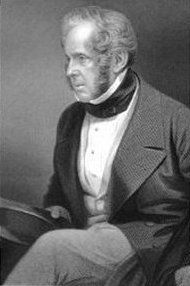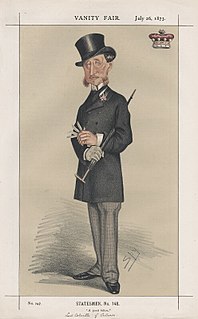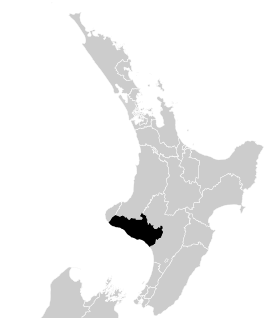Related Research Articles

Earl of Donoughmore is a title in the Peerage of Ireland. It is associated with the Hely-Hutchinson family. Paternally of Gaelic Irish descent with the original name of Ó hÉalaighthe, their ancestors had long lived in the County Cork area as allies of the Mac Cárthaigh clan; they lost out during the times of Oliver Cromwell. One branch of the family converted to the Anglican Church and after inheriting territories through his mother and adding "Hutchinson" to Hely, became the Earl of Donoughmore.

Viscount Dilhorne, of Greens Norton in the County of Northampton, is a title in the Peerage of the United Kingdom. It was created on 7 December 1964 for the lawyer, Conservative politician and former Lord Chancellor, Reginald Manningham-Buller, 1st Baron Dilhorne. He had already succeeded his father as fourth Baronet of Dilhorne and been created Baron Dilhorne, of Towcester in the County of Northampton on 17 July 1962, also in the Peerage of the United Kingdom. The Baronetcy, of Dilhorne in the County of Stafford, was created in the Baronetage of the United Kingdom on 20 January 1866 for the first Viscount's great-grandfather Edward Manningham-Buller. He represented Staffordshire North and Stafford in Parliament. Manningham-Buller was the third son of Sir Francis Buller, 2nd Baronet, of Churston Court, whose eldest son, the third Baronet, was created Baron Churston in 1858. His grandson, the third Baronet, sat as a Conservative Member of Parliament for Kettering and Northampton. He was succeeded by his eldest son, the aforementioned fourth Baronet, who was elevated to the peerage as Viscount Dilhorne. As of 2017 the titles are held by the latter's son, the second Viscount, who succeeded in 1980.

Baron Henniker, of Stratford-upon-Slaney in the County of Wicklow, is a title in the Peerage of Ireland. It was created in 1800 for Sir John Henniker, 2nd Baronet, who had previously represented Sudbury and Dover in the House of Commons. His son, the second Baron, also sat as a Member of Parliament. In 1792 he assumed by Royal licence the additional surname of Major. He was childless and was succeeded by his nephew, the third Baron. He assumed the additional surname of Major by Royal licence in 1822. His son, the fourth Baron, represented Suffolk East in Parliament. In 1866 he was created Baron Hartismere, of Hartismere in the County of Suffolk, in the Peerage of the United Kingdom. This title gave him and his descendants an automatic seat in the House of Lords. He was succeeded by his son, the fifth Baron. He also sat as Member of Parliament for Suffolk East and later held minor office in the Conservative administrations of Benjamin Disraeli and Lord Salisbury. His grandson, the eighth Baron, was a prominent diplomat and notably served as British Ambassador to Jordan and to Denmark. As of 2014 the titles are held by the latter's son, the ninth Baron, who succeeded in 2004.

Baron Stratheden, of Cupar in the County of Fife, and Baron Campbell, of St Andrews in the County of Fife, are two titles in the Peerage of the United Kingdom. The titles were created in 1836 and 1841 respectively. The barony of Stratheden was created for the Hon. Mary, Lady Campbell, wife of the prominent lawyer and Whig politician Sir John Campbell, and daughter of James Scarlett, 1st Baron Abinger. Sir John Campbell, who in 1836 served as Attorney-General in the Whig administration of Lord Melbourne, had twice been overlooked for the office of Master of the Rolls, and was about to tender his resignation to Melbourne as a result of this. However, he was talked out of resigning when it was decided that, in recognition of the value of his services, his wife should be raised to the peerage. Five years later he was himself created Baron Campbell on his appointment as Lord Chancellor of Ireland. He later held office as Lord High Chancellor of Great Britain.

John Romilly, 1st Baron Romilly PC, known as Sir John Romilly between 1848 and 1866, was an English Whig politician and judge. He served in Lord John Russell's first administration as Solicitor-General from 1848 to 1850 and as Attorney-General from 1850 and 1851. The latter year he was appointed Master of the Rolls, a post he held until 1873. Knighted in 1848, he was ennobled as Baron Romilly in 1866.

The Liberal government of the United Kingdom of Great Britain and Ireland that began in 1859 and ended in 1866 consisted of two ministries: the second Palmerston ministry and the second Russell ministry.

Admiral Sir John Charles Dalrymple-Hay, 3rd Baronet, was a Royal Navy officer and politician.
The Military Division of the Mississippi was an administrative division of the United States Army during the American Civil War that controlled all military operations in the Western Theater from 1863 until the end of the war.

Charles John Colville, 1st Viscount Colville of Culross,, known as The Lord Colville of Culross between 1849 and 1902, was a British nobleman, Conservative politician and courtier.

Invercargill is an electorate of the New Zealand Parliament that has existed since 1866. Since the 2020 election, the electorate's representative is Penny Simmonds of the National Party.
John George Brabazon Ponsonby, 5th Earl of Bessborough PC, styled Viscount Duncannon from 1844 until 1847, was a British cricketer, courtier and Liberal politician.

Whanganui is a New Zealand parliamentary electorate. It was first established in 1860 for the 3rd Parliament and has existed continuously since then.

John Coburn was a United States Representative from Indiana and an officer in the Union Army during the American Civil War.
Bruce was a rural parliamentary electorate in the Otago region of New Zealand, from 1861 to 1922. For part of the 1860s with the influx to Otago of gold-miners it was a multi-member constituency with two members.
Waikouaiti was a parliamentary electorate in the Otago region of New Zealand, from 1866 to 1908.
Gladstone was a parliamentary electorate in the Canterbury region of New Zealand, from 1866 to 1890.
Heathcote was a 19th-century parliamentary electorate in Christchurch, New Zealand.
The 4th New Zealand Parliament was a term of the Parliament of New Zealand.

In the 1863 Iowa State Senate elections, Iowa voters elected state senators to serve in the tenth Iowa General Assembly. Following the downsizing of the Iowa Senate from 49 to 46 seats in 1863, elections were held for 34 of the state senate's 46 seats. State senators serve four-year terms in the Iowa State Senate.

In the 1865 Iowa State Senate elections, Iowa voters elected state senators to serve in the eleventh Iowa General Assembly. Following the expansion of the Iowa Senate from 46 to 48 seats in 1865, elections were held for 23 of the state senate's 48 seats. State senators serve four-year terms in the Iowa State Senate.
References
- ↑ "Former Auditor Generals". auditorgeneral.gov.lk. Retrieved 13 December 2013.
- ↑ "No. 23059". The London Gazette . 12 January 1866. p. 210.